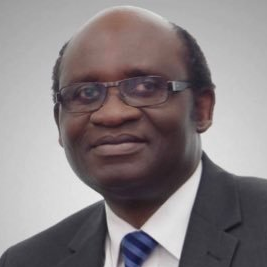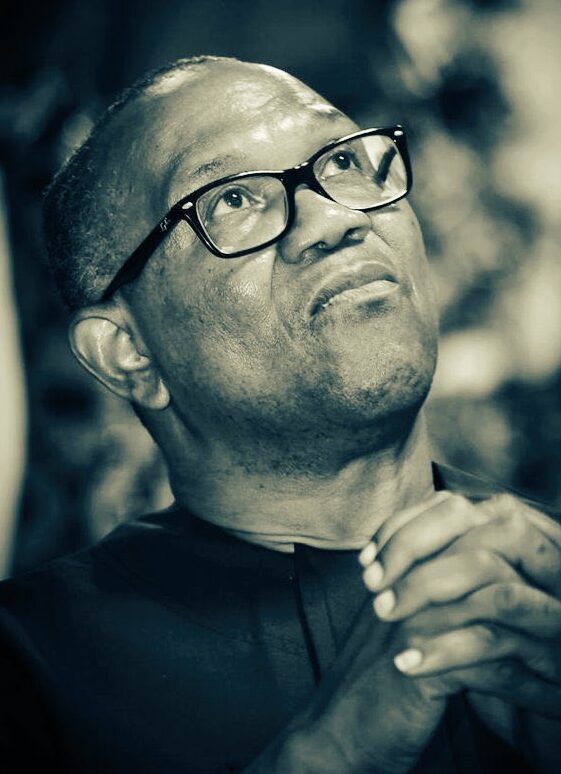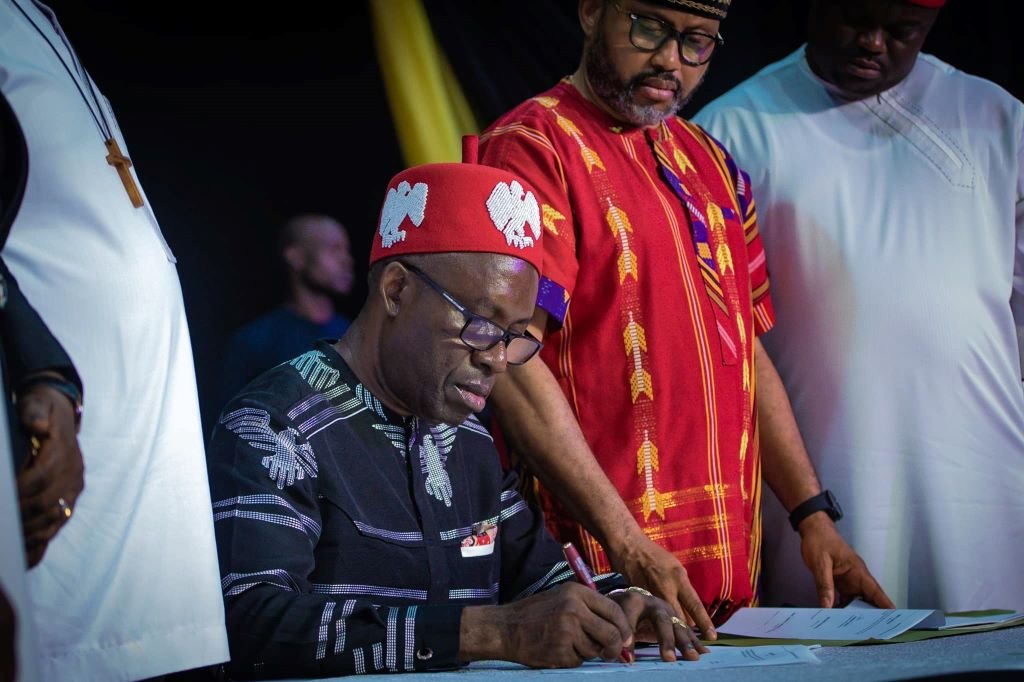The Labour Party’s recent convention sparked controversy with the re-election of Julius Abure and the premature endorsement of Peter Obi for the 2027 presidential election. This opinion piece by Dr. Olu Fasan critiques the party’s undemocratic actions and explores the challenges Obi may face in future elections.
Recently, the Labour Party held its controversial national convention, during which its beleaguered chairman, Julius Abure, was re-elected. This was against the wishes of the Nigerian Labour Congress (NLC), which founded the party, and veteran trade union leaders like Ali Chiroma, who died last week. R.I.P.) and Hassan Sunmonu, who urged Abure to resign. But the party took another perverse decision. It reserved its ticket for the 2027 presidential election for Peter Obi, the party’s candidate in last year’s presidential poll. That’s wrong for two reasons.
First, it’s presumptuous to name someone as the presidential candidate of any political party three years ahead of a presidential election. Second, the decision undermines the Labour Party’s democratic credentials. It is only in communist China or autocratic Russia that the position of a presidential candidate is foreclosed in favour of one person and against others. For instance, although Joe Biden and Donald Trump are shoo-ins for the candidacy of their respective parties in the US presidential election later this year, neither was declared a sole candidate. Trump still went through the primaries even though they were, more or less, a walkover for him, and had Biden faced challengers in his party, the Democrats would have held primaries too. A party that wants to govern a country must respect democratic norms and not behave like a communist politburo.

Of course, Obi would easily win any future Labour Party presidential primary. Here’s someone who transformed a fringe party almost into a national election-winning machine. Indeed, it is a plausible proposition that Obi won last year’s presidential election or pushed it into a runoff. According to INEC, Obi won 6,101,533 votes or 25.4 per cent; that’s despite his party having no state governor and no federal or state legislator—basically, no structure! While the APC had agents in 176,223 of the country’s 176,848 polling units, achieving 99.7 per cent coverage, and the PDP had agents in 176,588 polling units, with 99.9 per cent coverage, the Labour Party had agents in 134,874 polling units, managing 76 per cent coverage.
The British playwright Tom Stoppard famously said “it is not the voting that makes a democracy; it is the counting.” Given the propensity of state governors and other elected politicians to use their incumbencies to manipulate election results, it’s arguable that Obi’s votes were altered in states controlled by APC and PDP, and that if the short-changed votes were added to his official 6.1 million tally, Obi probably beat Bola Tinubu, who got 8.8 million votes, or pushed the election into a runoff, with him being one of the two run-off candidates. That postulation would, of course, annoy some people, but it’s a reasonable inference. That said, the Supreme Court has spoken, and the matter is closed. Obi, too, has moved on from the 2023 polls.
“it is not the voting that makes a democracy; it is the counting.”
Tom Stoppard
Well, except that he has not moved on from presidential politics. Since last year’s presidential election, Obi has maintained heightened visibility through high-profile appearances and interventions. He has positioned himself as the main opposition leader, acting, as someone put it, as “Shadow President.” What’s more, he still talks about the “OBIdient movement” as if he’s saying, Get ready for 2027! But can Obi surpass his 2023 performance and cross the tape in 2027? Truth be told, the landscape will be different in 2027, and Obi must be realistic and manage his expectations and those of his supporters.
“Truth be told, the landscape will be different in 2027, and Obi must be realistic and manage his expectations and those of his supporters.”
First, a general point. Obi is displaying political naivety. Recently, he said, “We promised to build Nigeria; we did not promise to build a New Labour Party.” What a preposterous and arrogant statement! Nigeria runs a party-based democracy and doesn’t allow for independent candidacy. The Constitution specifically states in Section 131: “A person shall be qualified for election to the office of the President if (c) he is a member of a political party and is sponsored by that political party.” How can any politician build a nation if he can’t build a political party? Serious politicians build viable political parties. Emmanuel Macron had a movement but also built a strong party, En Marche, that won him power in France in 2017. But Obi puts his faith in a “movement,” not in a party. That’s not how democracy and the party system work.
Apparently, Obi is considering dumping the Labour Party. He hinted at this when he said, “If we can’t change the Labour Party, we will leave them.” He will join Atiku Abubakar as Nigeria’s foremost serial defector. From APGA to PDP; from PDP to Labour; from Labour to where next? But political nomadism is not a new kind of politics, and political nomads are rarely trusted with national leadership. It’s sheer opportunism to see political parties as mere special-purpose vehicles for gaining power. Serious politics requires stickability, not fluidity of party loyalty, and requires investing in strong political parties, which are the midwives of democracy.
But beyond the general point, there are challenges ahead. First, many of those who supported Obi in 2023 were not OBIdients. They fell into three categories: those who hated Tinubu’s Muslim-Muslim ticket; those who didn’t want another Northerner to succeed President Buhari and, therefore, rejected Atiku; and those who believed the next president should, based on fairness, be of Igbo extraction. Surely, former President Obasanjo, who supported Obi, won’t call himself an “OBIdient.” The same goes for many prominent leaders across the country who backed Obi. They were motivated by certain principles. The question is: Can Obi sustain that coalition in 2027 when the issues may not have the same salience or provoke the same passion as they did in 2023? The jury is out!
Second, anyone who thinks that Tinubu would be like Goodluck Jonathan and allow himself to be kicked out of power is living in cloud cuckoo land. Tinubu will fight tooth and nail and exploit his power of incumbency to the fullest, including through settlements and co-options, to retain power. Unfortunately, the Supreme Court did a great disservice to Nigeria’s democracy by making it impossible to challenge a presidential election result. That’s a change in the landscape that can’t be ignored.
“Truth be told, the landscape will be different in 2027, and Obi must be realistic and manage his expectations and those of his supporters.”
Olu Fasan
Finally, there’s geopolitics. It’s a settled convention that if power stays in the North for eight years, it must return to the South, and vice versa. In 2019, Southern leaders decided to support Atiku against Buhari but gave him a condition: he must only do one term to complete the North’s two terms. They would not countenance a three-term Northern presidency. Indeed, in 2019, Atiku campaigned to run for one term, and no Southerner ran against Buhari and Atiku. It was a northern affair.
The same thing is likely to happen in 2027. Although some Northerners may want to run for president in 2027, the South will insist it should be allowed to complete its two terms, and most Northerners would agree. But the North will never countenance a three-term Southern presidency. So, even if Obi wins in 2027, he will only serve one term. The North will always speak with one voice when its collective interests are at stake. So, if President Obi refuses to serve just one term, the North will mobilise and kick him out, as they did Jonathan in 2015.
But here’s the dilemma: Some may wonder why they should elect a president for only one term. They may be torn between sticking with the devil they know (Tinubu) and electing the angel they do not know (Obi). That’s another potential landscape change.
The truth is, that Tinubu’s presidency has created a dangerous new normal. The landscape will be different in 2027. Obi can’t ignore that reality. That’s why he must manage and temper his expectations.
Opinion piece written by Dr Olu Fasan FRSA, @olu_fasan, Lawyer (PhD Law).
The opinions expressed in this article are strictly those of the author, and does not necessarily align with the views of JolibaLive News! or any of its staff members. The author is in no way associated with this online news blog.
Please Like 👍, Comment, Share & Follow us on our social media handles.








